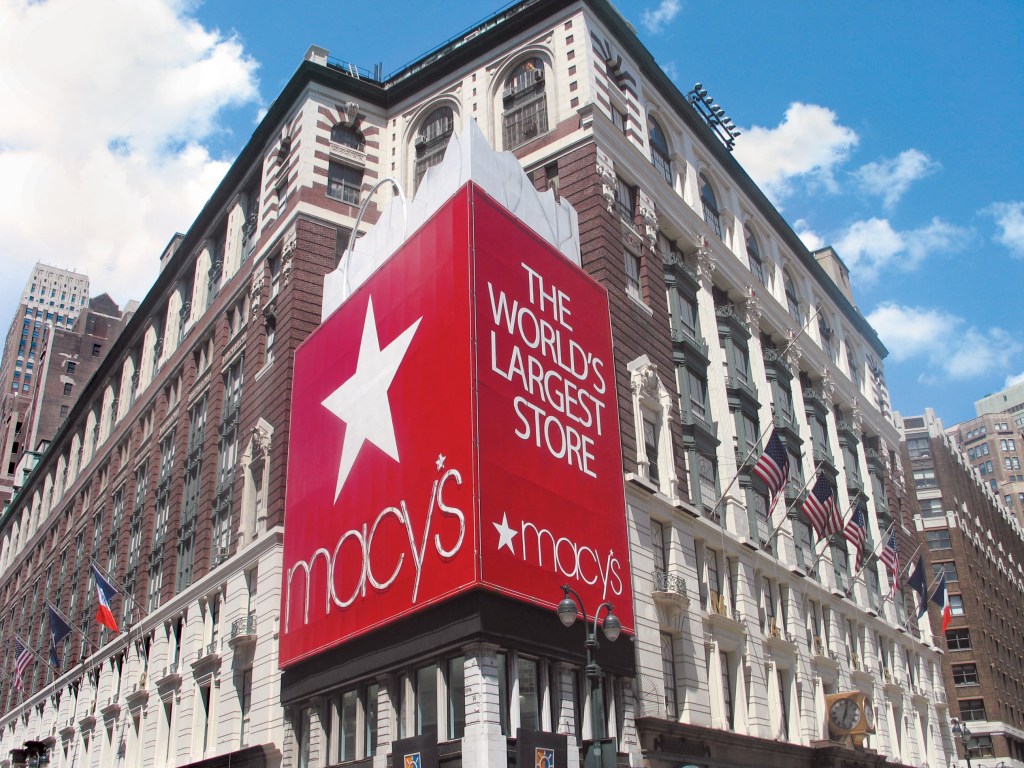There is unlikely to be many retailers or funds interested in bidding for Macy’s Inc., but one possible bidder could be Sycamore Partners.
Two sources told WWD that Sycamore, a New York-based private equity fund specializing in consumer, distribution and retail-related investments with about $10 billion in aggregate committed capital, is eyeing Macy’s for a possible bid. The sources believe Sycamore has the wherewithal and has raised debt, despite the tough borrowing climate, in preparation for what could be an all-cash offer to buy the retailer. Next year, interest rates are likely to be more favorable to M&A activity.
“He is the most capable to pull off that deal,” said one source, referring to Stefan Kaluzny, managing director of Sycamore Partners.
Spokesmen for Macy’s and Sycamore both declined comment Friday on the speculation.
If Macy’s Inc. became a private company as part of the Sycamore portfolio, the private equity firm could save millions of dollars by eliminating the Macy’s board and the dividends. There could be further savings through consolidations and synergies with other retailers within Sycamore’s portfolio, including Belk, the Charlotte, N.C.-based department store chain throughout the South.
Of greater appeal is Macy’s extensive real estate holdings. Sources indicated to WWD that executives at Sycamore have become more attuned to the value behind retail real estate. However, unlike other private equity firms, Sycamore gets involved in operating retailers and has a track record of holding onto retail brands for several years, rather than adhering to a short timetable for buying and selling.
Speculation around a Sycamore-Macy’s tie-up comes in the wake of the $21-a-share bid for Macy’s by Arkhouse and Brigade Capital Management. That bid, valued at $5.8 billion, is low, offering a small premium, particularly with the stock spiking after news of the bid emerged. Macy’s stock closed Friday at $19.71, up 9 cents, or 0.46 percent. Macy’s generated about $24 billion in sales last year.
Other firms with track records for investing in retail are Leonard Green & Associates, Bain Capital and Texas Pacific Group.
A new Macy’s Inc. owner could decide to sell off pieces of the business, such as Bloomingdale’s or Bluemercury, as well as retail boxes, parking areas and warehouses owned by Macy’s to more than recoup what might be paid for the whole company. In a five-year period, Macy’s raised $2 billion through real estate sell-offs, including shedding several prime downtown properties. Research firms have placed Macy’s real estate value from roughly $6 billion to $11 billion.
Sycamore has been building up its retail portfolio and has been more aggressive this year. In September, Sycamore struck a deal to buy Chico’s FAS Inc. for $1 billion. Last August, the firm formed a new holding company called the KnitWell Group, comprising its Ann Taylor, Loft and Talbots retail brands, which combined generate more than $3 billion in annual sales. And in February, Sycamore completed its acquisition of Lowe’s Canadian retail business, which changed its name to Rona Inc. It operates or services about 450 corporate and independent affiliate dealer stores under several banners, including Rona, Lowe’s, Réno-Dépôt and Dick’s Lumber. Sycamore has investments in other retailers including Staples, Torrid and Hot Topic.
Many Belk stores are in secondary markets where Macy’s does not have a location, and some could be converted to Macy’s new specialty format, which was originally called Market by Macy’s but is changing its name to just Macy’s. There are 12 small-format Macy’s operating and another 30 are expected to open in the next two years. Belk stores are of varying sizes, some of which would fit into the small-scale Macy’s concept.
However, retail sources believed that Belk would not be a big factor in Sycamore’s consideration of a potential bid for Macy’s.



